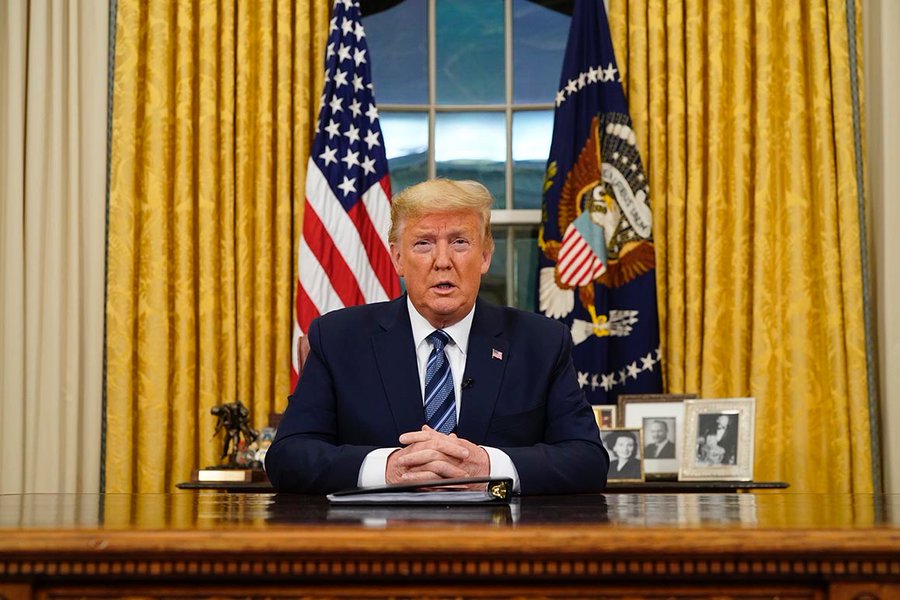The Minnesota Supreme Court has dismissed an attempt to prevent Donald Trump from appearing on the 2024 Republican presidential primary ballot in the state. However, the court has indicated that it would consider potential challenges to Trump’s eligibility for the November 2024 presidential election ballot.
Multiple legal efforts are currently underway in several states to bar the former president from running in the 2024 White House race. These efforts are based on the argument that Trump violated his oath of office by allegedly supporting an insurrection, particularly the January 6, 2021 attack on the US Capitol by his supporters.
This argument revolves around the 14th Amendment to the US Constitution, which includes Section 3, prohibiting anyone who has engaged in “insurrection or rebellion” after having pledged to support and defend the Constitution from holding public office.
Also Read: Will Donald Trump attend the third GOP debate in Miami?
The 14th Amendment was ratified in 1868 with the intent of preventing former supporters of the Confederate states from holding federal positions or being elected to Congress.
In Minnesota, a group of voters petitioned the state supreme court to exclude Trump from the Republican presidential primary ballot based on the 14th Amendment. However, the court rejected this attempt, stating that there is no state statute preventing a major political party from including a candidate on the primary ballot.
The court did leave the door open for considering the general election claim at a later date, should Trump secure the Republican presidential nomination, and another legal petition is filed.
Similar legal proceedings are ongoing in Colorado, also based on the 14th Amendment. Regardless of the outcome, it is expected that these cases will eventually reach the US Supreme Court, where conservatives hold a majority.
In addition to these legal challenges, Trump is facing a federal trial in Washington in March, where he is charged with conspiring to overturn the results of the November 2020 election. Similar charges are pending against him in Georgia. Although he was impeached a second time by the House of Representatives, he was acquitted by the Senate for his alleged role in inciting the January 6 insurrection.
Trump has vehemently opposed these efforts to prevent his candidacy and has claimed they lack a legal basis, characterizing them as part of a broader political agenda on the left.







